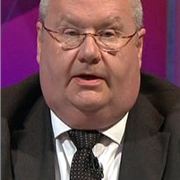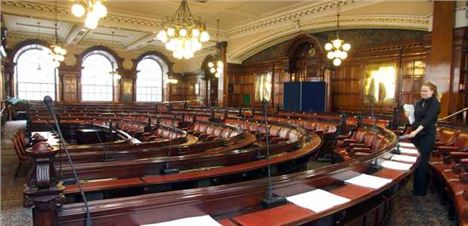KATE BUSH simply asked her fans to put the smartphones away. But Liverpool Town Hall bosses may not have the same luck with a new army of citizen journalists, set to capture their performances for posterity
They are meeting next week to discuss how to deal with a decision, by Communities and Local Government Secretary Eric Pickles, to give the public the right to film, audio record, photograph, tweet or blog at any council or committee meeting.
Currently, in Liverpool, filming or photography in the council chamber or committee rooms is allowed only if the Lord Mayor, chairman and the councillors present agree. Even then, the facility is limited to members of accredited news organisations.
Now it will become a free-for-all: anybody armed with a mobile phone, camera or tape recorder will be able, legally, to turn up at any meeting and start recording. No permission needed.
 Eric PicklesThis is how Mr Pickles’ department views the new age of communication: “We now live in a modern, digital world where the use of modern communication methods such as filming, tweeting and blogging should be embraced for enhancing the openness and transparency of local government bodies. This will ensure we have strong, 21st century, local democracy where local government bodies are genuinely accountable to the local people whom they serve and to the local taxpayers who help fund them.
Eric PicklesThis is how Mr Pickles’ department views the new age of communication: “We now live in a modern, digital world where the use of modern communication methods such as filming, tweeting and blogging should be embraced for enhancing the openness and transparency of local government bodies. This will ensure we have strong, 21st century, local democracy where local government bodies are genuinely accountable to the local people whom they serve and to the local taxpayers who help fund them.
“These rules help any members of the press and public who want to know about, view or report the work of local government bodies. The “press” is defined in the widest terms – including traditional print media, film crews, hyper-local journalists and bloggers.
Disruptive
“The new national rules have increased your rights to film, audio-record, take photographs, and use social media such as tweeting and blogging to report the proceedings of all such meetings that are open to the public.”
On Monday, Liverpool’s Constitutional Committee will decide how to embrace the new brave world of wall-to-wall coverage of its affairs.
A report to the committee states: “Councils and other local government bodies are now required to allow any member of the public to take photographs, film and audio-record the proceedings, and report on all public meetings subject to the individuals not disrupting the proceedings.”
The report adds that members of the public undertaking such activities must not act in a disruptive manner, which could possibly result in them being excluded from the meeting.
“It is therefore proposed that while no prior permission is required to carry out this activity, it is advisable that any person wishing to film or audio-record a public meeting let committee staff know so that any necessary arrangements can be made for the public for the meeting. This is important because the rules require that the Council provide reasonable facilities only for any member of the public to report on meetings and to assist in the smooth running of the meeting.”
The new council rules will request individuals who wish to record or report to advise relevant committee staff prior to the meeting of their intention to record. They will have to keep their devices on silent and not use any lighting or flash photography without the permission of the chair of the meeting. They also must not disrupt the conduct of the meeting.
The Laz Word... on selective edits and other flashpoints
There were debates, reports and discussions spanning many years prior to allowing cameras into the Houses of Parliaments. Even now still photography in Parliament is not allowed.
The Pickles charter could easily create figurative flash points in council chambers. Although people are requested to give prior notice, there is no legal requirement to do so.
What if a citizen correspondent has an agenda of his or her own? What if they use their audio or film in a selective way? As anyone who has ever featured on a reality TV show will know, the most basic editiong tools allow a comment or remark to be plucked out of original context.
This is what Liverpool’s guidelines says on that point: “The council welcomes responsible reporting of its meetings in order to promote greater transparency and awareness of its decision-making.
“The council requests anyone recording proceedings to provide a balanced recording of the proceedings and not to edit the film or recording in any way which could lead to a misinterpretation of the proceedings or which reflects only a single or particular point of view expressed at the meeting.”
That may well seem like sound guidance, but it is not the job of the council to lay down editorial rules on how material is used or edited.
Nevertheless, officials have their eye on other potential pitfalls.
“Where the chairperson of a relevant meeting considers that any filming, recording activity or use of social media is causing a disruption to the meeting, the person causing the disruption will be requested to take appropriate action so that this is no longer the case,” it says. “Should the disruption continue, which makes orderly business impossible, the chairperson will have the discretion to take whatever action he/she thinks appropriate, for example adjourning the meeting.”
Town Hall chambers, in the meantime, could become battlegrounds if councillors attempt to silence a new army of citizen observers. Watch this (YouTube) space carefully, there could be fireworks soon.











